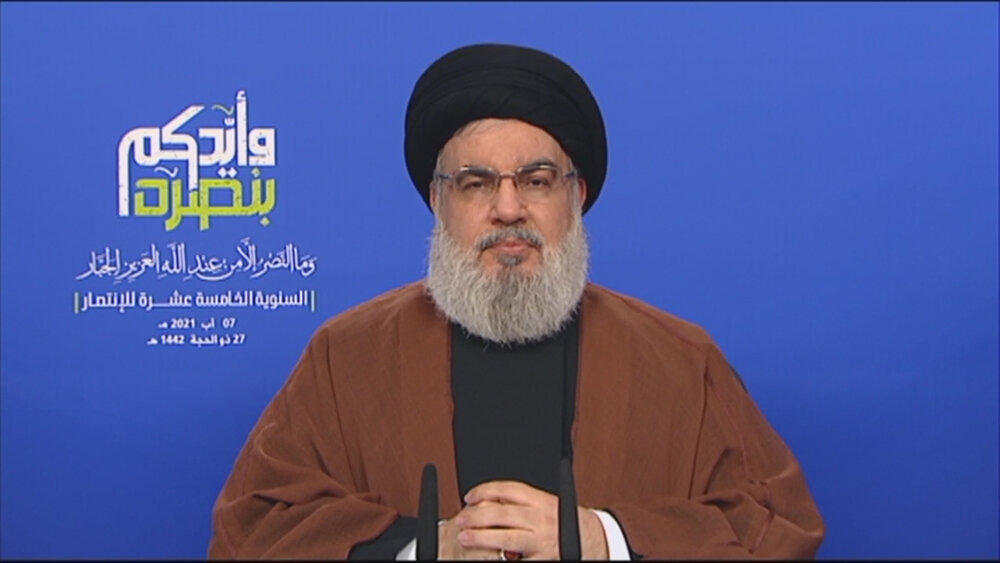Israel receives a slap in the face from Hezbollah

TEHRAN – On the eve of the anniversary of the 2006 July War between Lebanon’s Hezbollah and Israel, an exchange of fire took place between the two sides. On the surface, it seemed a minor incident in the perennially unstable West Asia region. But in reality, it was strategically important in terms of reiterating the longstanding red lines along the Lebanon-Israel border.
For more than a decade, the shared borders between Israel and Lebanon have been relatively stable and calm compared to Israel’s borders with Syria and the Gaza Strip. Southern Lebanon has been the only region that continued to be stable despite the presence of Resistance groups. And the underlying reason for this is the 2006 war that changed the balance of power between Hezbollah and Israel. During that war, Israel faced a formidable foe in Lebanon for the first time. Hezbollah showed much prowess and capability, facing down a foe that had believed its self-proclaimed delusion of being invincible.
The lesson Israel learned from the 2006 war was that no Israeli provocations and aggressions against Lebanon would go unanswered. This red line was respected by Israel throughout its so-called “campaign between wars,” a military doctrine mostly aimed to confront Iran’s spheres of influence in the region while keeping the confrontation below the threshold of an all-out war, to eliminate its regional influence and undermine its nuclear program.
Despite being a Resistance stronghold, southern Lebanon was spared Israeli military strikes and bombing until most recently. In what appeared to be a bid to change the rules of engagement between Israel and Lebanon, Israel launched at least two airstrikes on Lebanon, the most severe such strikes since 2006, after unidentified gunmen fired three rockets at Israel on Wednesday.
The Israeli aggression came at a time when even the Israelis themselves concluded that Hezbollah was not behind the last event. Israeli Brigadier General Nitzan Nuriel, the former head of Israel’s counterterrorism bureau, admitted that it is more likely that it is Palestinians than Hezbollah. “I believe Hezbollah is not behind the last event,” Nuriel noted.
However, Israel chose to proceed with its plan to commit aggression against Lebanon in an apparent effort to test the waters and see if Hezbollah still attached importance to the rules established after the 2006 war.
It was in these circumstances that Israeli warplanes carried out two raids on the town of Mahmudiya, about 12 kilometers from the Israeli border. They struck an open area.
This aggression prompted Hezbollah to restore balance by responding to Israel. On Friday, the Resistance in a statement claimed responsibility for the rockets fired from the Arqoub area towards the occupied Shebaa Farms, declaring that “the groups of the martyr Ali Kamel Mohsen and the martyr Muhammad Qassem Tahan in the Islamic Resistance bombed open lands in the vicinity of the Israeli occupation sites in the Shebaa Farms with dozens of 122mm rockets.” And this was in response to “Israeli air raids on open lands in the Al-Jarmaq and Al-Shawakir areas last Thursday night.”
Following the Resistance’s response, video footage uploaded on social media platforms purportedly showed a few people getting in the ways of a Hezbollah vehicle that carried rocket launchers. As usual, some media outlets started propagating misleading analyses about the people of southern Lebanon getting fed up with the resistance group.
Hezbollah issued a statement explaining what happened. “At 11:15 a.m. on Friday, the Islamic Resistance responded to the Israeli aggression by targeting the vicinity of Israeli enemy posts in Shebaa Farms with dozens of rockets fired from woodlands that are far from residential areas,” the statement said. “The Resistance has been and will stay keen to ensure the safety of its people.”
Lebanese Al-Akhbar newspaper quoted security sources as saying that those who intercepted the Hezbollah vehicle were supporters of former pro-Israel Lahd militiamen. They ambushed Hezbollah rocketry unit which carried out the attack on the open areas near Zionist military posts in occupied Shebaa Farms.
The sources added that the former Lahd militiamen played a vital role in ambushing and seizing the truck loaded with a launcher and rockets by inciting the locals to congregate around the vehicle.
But this suspicious incident failed to overshadow the importance of Hezbollah’s response, which once again reaffirmed to Israel that its aggression will always be answered.
In his recent speech, Hezbollah Secretary General Sayyed Hasan Nasrallah underlined this. He stressed on Saturday that the Resistance won’t allow the Israeli enemy to change the rules of engagements, warning that the Israeli army will be destroyed in any future war. In a televised address via Al-Manar on the fifteenth anniversary of divine victory in the 2006 July War, Sayyed Nasrallah said that the balance of deterrence is the most strategic achievement of the 33-day war.
He described the Israeli aerial aggression on south Lebanon on Thursday as a dangerous development, elaborating on the Resistance retaliation in Shebaa Farms which took place on Friday. He also noted that Hezbollah doesn’t fear a war with the Zionist entity, affirming that the Lebanese Resistance party is fully prepared to confront any Israeli war.
